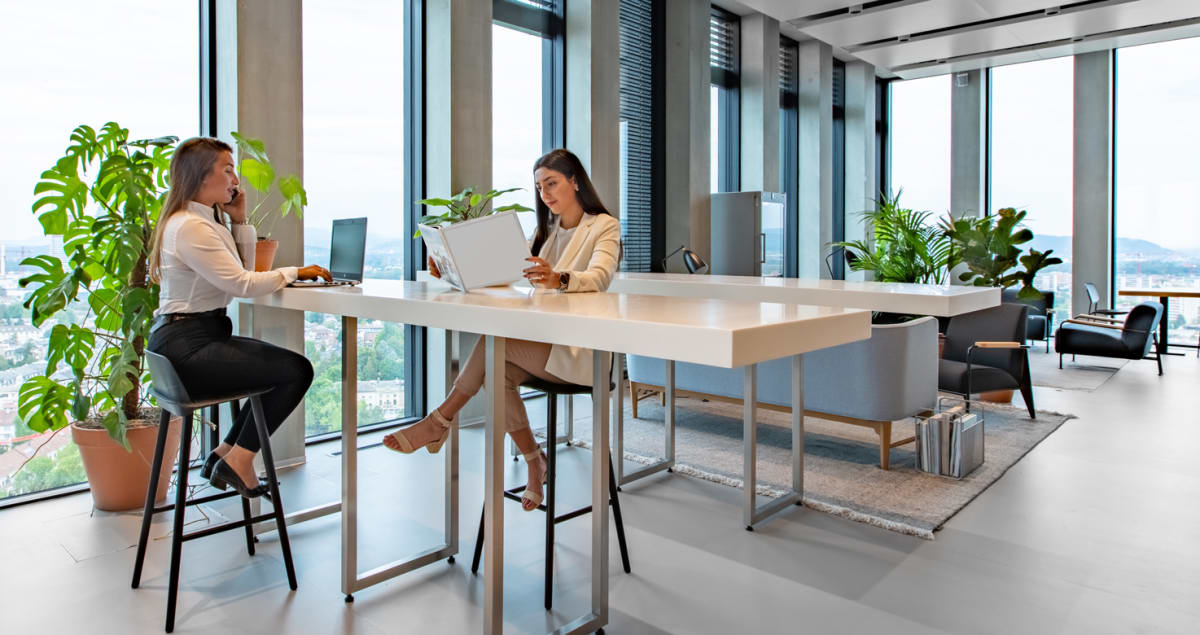With many landlords wondering what they can do to make the office as appealing as possible in the new world of hybrid working, could ‘productivity as a service’ be the trend for 2021?
As corporates consider a return to the office after the pandemic – for some of the time at least – it’s the ‘P word’ that’s on everybody’s lips: productivity.
For some, working from home has reinforced the perception that they can be more productive when they are in their own space – with the challenge for employers and for office owners being to persuade them otherwise. However, the true picture is more nuanced than that. Being more productive at home is only the case for some kinds of work. One common finding, for example, is that ‘focus work’ can be better served working from home, while ‘collaborative work’ is often better done at the office.
With this in mind, the imperative for office owners is to make their space work harder at delivering the productivity that people – and their organisations – want to achieve.
Offices transformed
“Few offices have been intentionally designed to support specific organisational priorities,” points out McKinsey. “Although offices have changed in some ways during the past decade, they may need to be entirely rethought and transformed for a post-Covid-19 world.”
It suggests that organisations could create workspaces specifically designed to support the kinds of interactions that cannot happen remotely.
So what do workers say they need to be more productive in an office environment? When CBRE conducted a recent survey of more than 1,000 office workers, it concluded that many were “rethinking what amenities and workplace perks matter most”. For many, it added, the answer is clear: “People go to the office to get work done and want amenities that make the workday more comfortable and productive.”
With this in mind, CBRE predicts an increased emphasis on activity-based workspaces, and settings such as meeting rooms and project spaces that fulfil specific needs that can’t be accomplished via remote work.
And JLL has come to a similar conclusion. Its research found that workers “desire new spaces in offices dedicated to focused solo work. So while tomorrow’s offices will need to become great places for collaboration, they will also have to accommodate solo working and remote collaboration through isolation spaces and technologies to support meetings with remote colleagues”.
‘Productivity as a service’
The idea of ‘space as a service’, first mooted in 2018 and growing in popularity since, meets this need to some extent, since office space is no longer treated as a commodity, but as something more receptive to customer needs.
Yet where an organisation has dedicated space, it’s also necessary for that space to evolve in sync with the organisation it serves, so that design and layout are refreshed regularly – rather than being a once in a decade event. Experts now argue that what’s needed is more of an agile approach, and thinking in terms of ‘productivity as a service’ instead.
In the future, companies that want to maximise the productivity of their workforce will need to adopt an evolving, people-centric approach: studying the way their people interact, utilise space and move around in order to design solutions that will optimise those activities. As the way people work changes, so too will the spaces landlords and property owners need to be able to offer.
Become and IWG landlord partner
Many forward-thinking landlords have already realised this and have partnered with flexspace office providers, such as IWG, to help them transform their property into a place where people and their businesses work more productively. IWG opened 104 new properties between February and September 2020, across its nine distinct brands in Europe, North America and Latin America, Africa, the Middle East and Asia-Pacific.
Working with IWG enables landlords to draw on the company’s local, national and international infrastructure in order to add value to their property and reach a global audience of high-quality commercial tenants.
From private offices and coworking solutions, to business lounges and meeting rooms, the partnership helps landlords to create whichever format and style meets the specific needs of their buildings and customers.
Of course, the first priority when the pandemic retreats and companies bring their workers back to the office will be to ensure that social distancing is in place, and that people are safe. But following close behind will be this focus on creating more productive environments. The future of the office depends on it.
Flexible workspace is the fastest-growing sector of the global workplace market. Make the most of this exciting investment opportunity by partnering with IWG today






